Godzilla 4K Blu-ray Movie
HomeGodzilla 4K Blu-ray Movie 
ゴジラ / Gojira / includes "Godzilla, King of the Monsters!" (1956) on BD / 4K Ultra HD + Blu-rayCriterion | 1954 | 1 Movie, 2 Cuts | 96 min | Not rated | Nov 05, 2024
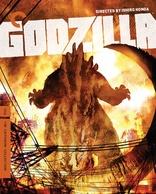
Movie rating
8.1 | / 10 |
Blu-ray rating
| Users | 3.8 | |
| Reviewer | 4.5 | |
| Overall | 3.8 |
Overview
Godzilla 4K (1954)
A fire-breathing behemoth terrorizes Japan after an atomic bomb awakens it from its centuries-old sleep.
Starring: Takashi Shimura, Akihiko Hirata, Fuyuki Murakami, Akira Takarada, Momoko KôchiDirector: Ishiro Honda
| Foreign | Uncertain |
| Horror | Uncertain |
| Sci-Fi | Uncertain |
| Drama | Uncertain |
| Epic | Uncertain |
| Thriller | Uncertain |
Specifications
Video
Video codec: HEVC / H.265
Video resolution: 4K (2160p)
Aspect ratio: 1.37:1
Original aspect ratio: 1.37:1
Audio
Japanese: LPCM Mono (48kHz, 24-bit)
Subtitles
English
Discs
Blu-ray Disc
Two-disc set (2 BDs)
4K Ultra HD
Playback
Region A (locked)
Review
Rating summary
| Movie | 3.5 | |
| Video | 4.0 | |
| Audio | 4.5 | |
| Extras | 5.0 | |
| Overall | 4.5 |
Godzilla 4K Blu-ray Movie Review
Reviewed by Dr. Svet Atanasov October 13, 2024Ishiro Honda's "Godzilla" (1954) arrives on 4K Blu-ray courtesy of Criterion. The supplemental features on the release include Terry O. Morse's reworking of the original film, "Godzilla, King of the Monsters!" (1956); theatrical trailers; archival video interviews with cast and crew members; video interview with Japanese cinema expert and film critic Tadao Sato; two audio commentaries by critic David Kalat; and more. In Japanese, with optional English subtitles. Region-Free.
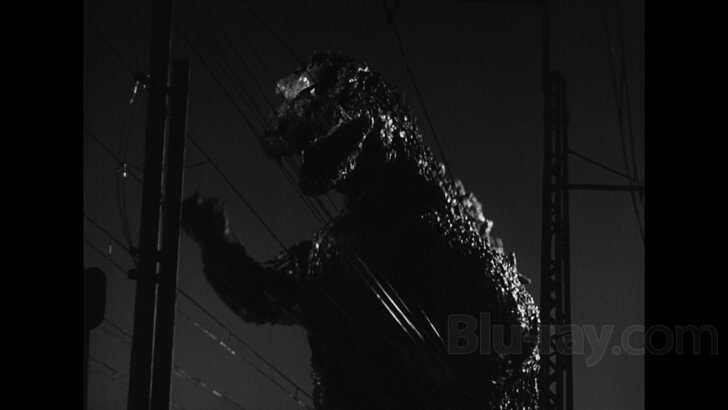
The story is legendary. After some nuclear testing, a giant monster, called Godzilla, emerges from the depths of the sea and heads towards Tokyo. The Japanese government sends the army to stop it, but it quickly becomes clear that it does not have the proper resources to do so. With panic quickly taking hold in the minds of the Japanese people, Dr. Serizawa (Akihiko Hirata, Zero Pilot, The Imperial Navy) reveals that he has built a powerful new weapon, the “Oxygen Destroyer”, which could be used to destroy the monster. But respected paleontologist Kyohei Yamane (Takashi Shimura, Seven Samurai, Yojimbo) urges the government to form a research team and study the monster first before destroying it.
Japanese director Ishiro Honda’s iconic film Godzilla is undoubtedly a product of its time. Completed only nine years after the destruction of Hiroshima and Nagasaki, it embodies the fears of a country seriously concerned with nuclear experimentation. It is slow and moody, at times more depressing than exciting, looking terribly dated. Sadly, its message remains relevant today.
There is a fascinating sequence early into Godzilla where the paleontologist speculates where the monster might have come from and why. Immediately after his report, high-ranking politicians begin arguing whether the information should be made public. Some believe that the Japanese people should be kept in the dark to avoid panic and preserve the economy; others believe that the information from the report should be released immediately. This specific debate appears awfully similar to the one Japanese politicians apparently had earlier this year after the accident at the Fukushima Daiichi nuclear power plant.
However, the tone of Godzilla is not preachy. Rather, it is respectful and sensible. The various arguments and warnings heard after the monster's arrival make sense because they are grounded in reality, urging the viewer to consider the difficult dilemmas a serious nuclear disaster could create. Naturally, the real monster that emerges is not the seemingly indestructible Godzilla, but fear.
In 1956, two years after Godzilla premiered in Japan, an American adaptation titled Godzilla, King of the Monsters! was completed. Co-directed and edited by Terry O. Morse and starring Raymond Burr as a reporter on his way to Egypt who gets stuck in Tokyo when the monster appears, the American adaptation combines a large amount of footage from the Japanese film with new material which alters the original order of events. It begins after the monster’s second attack on Tokyo, and thus omits the linear structure of the Japanese film. Also, it omits all the important scenes that condemn the nuclear experimentations. Unsurprisingly, Godzilla and Godzilla, King of the Monsters! are two very different films. The former is a dated but socially conscious film with a meaningful message. The latter is a lighter and less ambitious film meant to entertain rather than raise awareness and spark debates.
Godzilla was lensed by acclaimed Japanese cinematographer Masao Tamai, who contributed to various films directed by Kenji Mizoguchi, Hiroshi Inagaki, and Kon Ichiakawa. Tamai’s most prolific work, however, was with Mikio Naruse (Meshi, The Thunder of the Mountain, When A Woman Ascends The Stairs). The special effects in Godzilla were directed and overseen by Eiji Tsuburaya. In 1954, the film won Best Special Effects Award at the Japanese Academy Awards.
Godzilla 4K Blu-ray Movie, Video Quality 
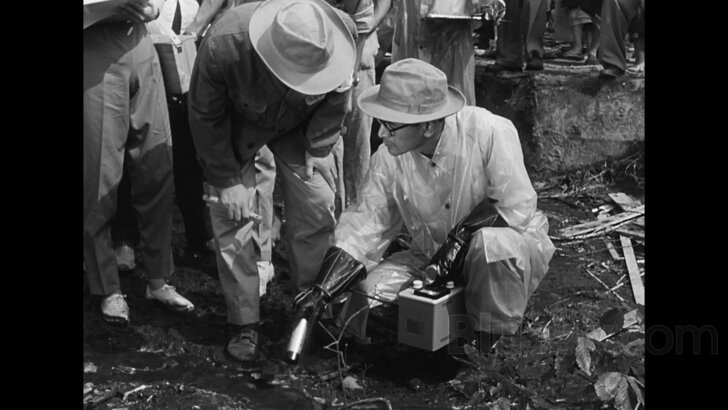
Criterion's release of Godzilla is a 4K Blu-ray/Blu-ray combo pack. The 4K Blu-ray is Region-Free. However, the Blu-ray is Region-A "locked".
Please note that all screencaptures included with this article are taken from the 4K Blu-ray and downscaled to 1080p. Therefore, they do not accurately reflect the quality of the 4K content on the 4K Blu-ray disc.
Godzilla entered the Criterion Collection with this Blu-ray release in 2012. The combo pack introduces a new 4K restoration, which cannot be viewed with Dolby Vision or HDR grades.
The new 4K restoration has various pros and cons. For example, it produces cleaner and in some areas more stable visuals. However, there are still numerous source limitations affecting delineation, clarity, and depth. Furthermore, it is probably fair to say that a lot of visuals appear better balanced, though the special effects and stock footage keep the obvious shifts in quality obvious. Unfortunately, it is pretty easy to tell that a lot of the rebalancing work was done with filtering adjustments, which in many areas eliminate a notcieable amount of grain and small details. I did quite a few comparisons with the previous presentation of the film and I found it to have a superior organic appearance. Yes, it is a rougher appeatance too, but it is more convincing. On the new 4K restoration, there are segments that look quite soft, at times almost as flat as some visuals previous home video releases have produced. The main difference is that now these segments look much cleaner and boasting better balanced blacks, grays, and whites. I think that this is the crucial and most unfortunate trade-off. The previous presentation looks rougher but has a superior organic appearance, while the new 4K restoration produces cleaner visuals but removes grain and in some cases detail. Fluidity is something of a mixed bag, too. In some areas, the new 4K restoration looks quite good, but elsewhere it is on the verge of producing blurriness. So, if you already have the previous Blu-ray release, my advice would be to find a way to test the new 4K restoration before purchasing the combo pack.
Godzilla 4K Blu-ray Movie, Audio Quality 
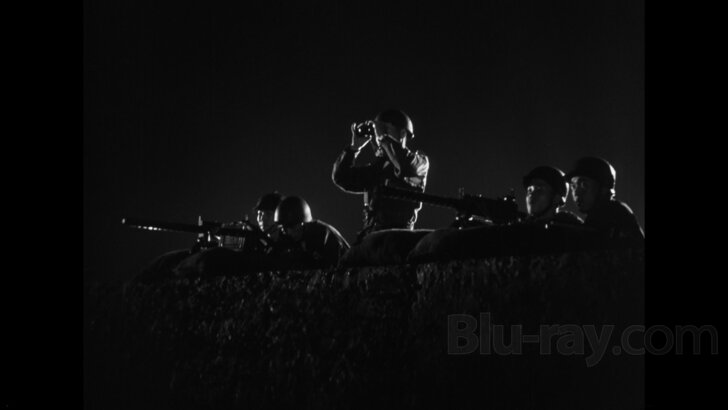
The new 4K restoration of Godzilla can be viewed with a Japanese LPCM 1.0 track. Optional English subtitles are provided for the main feature.
I would describe the lossless track as very good. However, it must be said that the original sound design of Godzilla has many dated qualities. For example, there is plenty of dynamic unevenness, and sometimes the audio could become rather thin. On the other hand, Akira Ifukube's music score is very effective, even though its native limitations are obvious as well. I do not know if any new work was done on the audio track. It is possible that the upper register has been treated with some cosmetic work, but the overall quality of the audio remains as it was on the previous release of Godzilla.
Godzilla 4K Blu-ray Movie, Special Features and Extras 
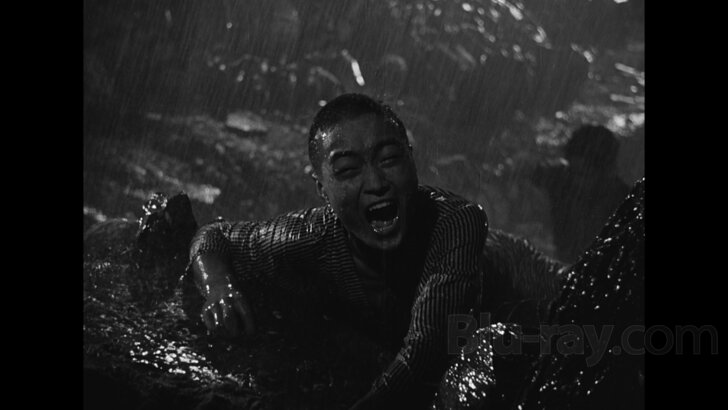
4K BLU-RAY DISC
- Commentary - this archival audio commentary was recorded by critic David Kalat, author of A Critical History and Filmography of Toho's Godzilla Series. The commentary is informative, but admittedly too emotional and ultimately quite difficult to endure. The structural analysis and the examination of the socio-political conditions Godzilla represents, however, are very good.
- Godzilla, King of the Monsters! - the 1956 feature film co-directed and edited by Terry O. Morse. In English and Japanese, with optional English subtitles. (81 min, 1080p).
- Commentary One - this archival audio commentary was recorded by critic David Kalat, author of A Critical History and Filmography of Toho's Godzilla Series, in 2011. The commentary is informative, but admittedly too emotional and ultimately quite difficult to endure. The structural analysis and the examination of the socio-political conditions Godzilla represents, however, are very good.
- Commentary Two - this archival audio commentary for Godzilla, King of the Monsters! was recorded by critic David Kalat in 2011.
- Photographic Effects - a short featurette focusing on some of the unique visual tricks in Godzilla. Introduced by effects director Koichi Kawakita and SFX cameraman Motoyoshi Tomioka. In Japanese, with optional English subtitles. (10 min).
- Tadao Sato - in this video interview, Japanese cinema expert and film critic Tadao Sato discusses Godzilla, its production history, and cultural significance. The interview was conducted in 2011. In Japanese, with optional English subtitles. (15 min).
- Cast and Crew - four archival interviews with cast and crew members recalling and discussing their contribution to Godzilla. In Japanese, with optional English subtitles.
- Akira Takarada (actor). Recorded in 2011. (13 min).
- Haruo Nakajima (actor). Recorded in 2011. (10 min).
- Yoshio Irie and Eizo Kaimai (effects technicians). Recorded in 2011. (31 min).
- Akira Ifukube (composer). (51 min).
- Photographic Effects - a short featurette focusing on some of the unique visual tricks in Godzilla. Introduced by effects director Koichi Kawakita and SFX cameraman Motoyoshi Tomioka. In Japanese, with optional English subtitles. (10 min, 1080i).
- Trailer One - the original theatrical trailer for Godzilla. In Japanese, with optional English subtitles. (3 min).
- Trailer Two - the original theatrical trailer for Godzilla, King of the Monsters!. In English, not subtitled. (2 min).
- Booklet - an illustrated booklet featuring an essay by critic J. Hoberman, as well as technical credits.
Godzilla 4K Blu-ray Movie, Overall Score and Recommendation 
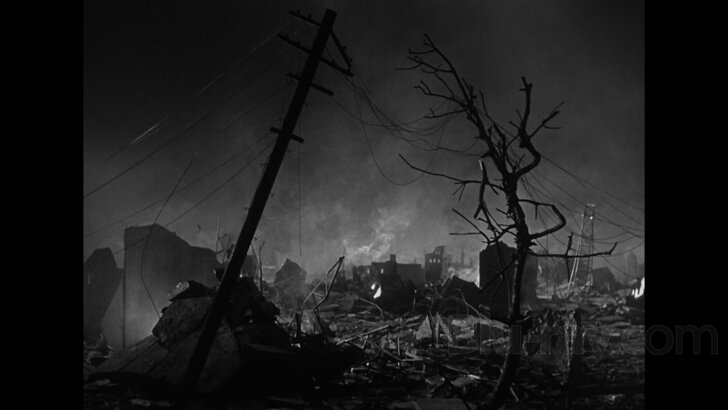
If you have the first Blu-ray release of Godzilla, you have already seen the best presentation of the film. This upcoming combo pack introduces a new 4K restoration of it that produces cleaner visuals, but many of them do not have a stable organic appearance. However, the combo pack has a copy of the previous presentation too, so it is easy to recommend to folks that do not yet have Godzilla in their collections. RECOMMENDED.
Other editions
Godzilla: Other Editions

Godzilla
ゴジラ | Gojira | New transfer exclusive to "Showa-Era" box set
1954

Godzilla
ゴジラ / Gojira / includes "Godzilla, King of the Monsters!" (1956)
1954

Gojira
Godzilla
1954

Godzilla
ゴジラ / Gojira / includes "Godzilla, King of the Monsters!" (1956)
1954
Similar titles
Similar titles you might also like

Shin Godzilla 4K
シン・ゴジラ | Shin Gojira | Godzilla: Resurgence 4K (Limited Edition
2016

Godzilla, King of the Monsters!
1956

Godzilla Minus One 4K
2023

Godzilla Raids Again
ゴジラの逆襲 / Gojira no gyakushû
1955

King Kong vs. Godzilla
キングコング対ゴジラ / Kingu Kongu tai Gojira / 1962 Japanese version
1962

The Host
괴물 / Gwoemul
2006

The H-Man
Bijo to Ekitainingen
1958

Godzilla vs. the Smog Monster
ゴジラ対ヘドラ / Gojira tai Hedora / Godzilla vs. Hedorah
1971

Invasion of Astro-Monster zero
1965

Godzilla vs. Megalon
ゴジラ対メガロ / Gojira tai Megaro
1973

Terror of Mechagodzilla
メカゴジラの逆襲 / Mekagojira no gyakushu
1975

REC 4: Apocalypse
[•REC]⁴: Apocalypse / [•REC]⁴: Apocalipsis
2014

Sputnik
Спутник
2020

Destroy All Monsters
怪獣総進撃 / Kaijû sôshingeki
1968

Godzilla on Monster Island
地球攻撃命令 ゴジラ対ガイガン / Chikyû kogeki meirei: Gojira tai Gaigan / Godzilla vs. Gigan
1972

Gamera 3: Revenge of Iris
1999

Gamera 2: Attack of the Legion
Gamera 2: Region shurai
1996

The Untamed
La región salvaje
2016

Quatermass and the Pit
Five Million Years to Earth
1967

Twenty-Four Eyes
二十四の瞳 / Nijûshi no hitomi
1954